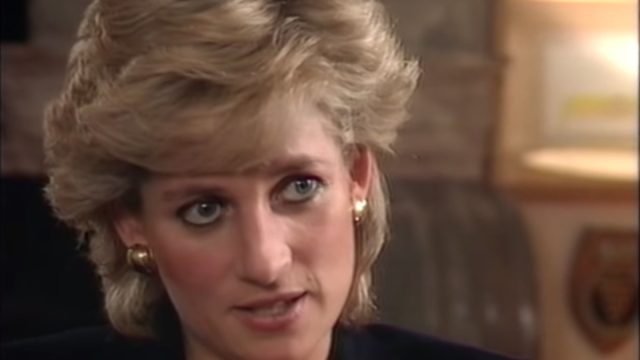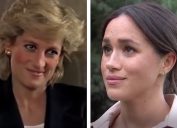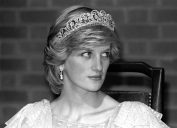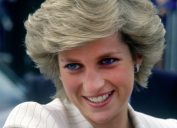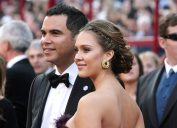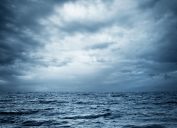The One Person Who Tried to Stop Diana From Doing the BBC Interview
The confidant who introduced Diana to Martin Bashir also told her to stop speaking with him.
Last week, an explosive report from an independent investigation revealed how Princess Diana was deceived by now former BBC reporter Martin Bashir in order to obtain the infamous 1995 Panorama interview, which was watched by over 20 million people and forever changed the course of Diana's life. The inquiry—which was conducted by Lord Dyson, a former British judge and barrister—also uncovered the BBC's stonewalling techniques that stymied their own internal investigation. Dyson discovered that questions about the legitimacy of Bahir's "unethical" tactics started in 1996, just months after the program aired, but editors at the BBC were told not to do any follow-up stories. While the new report unravels the level of deception of one ruthless reporter and the once revered BBC, it also paints a very personal and tragic picture of Diana's fragility in those last years of her life.
The Panorama interview—during which Diana famously said, "There were three of us in this marriage" and confessed to her own infidelity—helped create a false narrative that has endured for over 25 years. It has long been believed that it was solely Diana's idea to speak out on the BBC program, when in truth, it was a series of lies and misrepresentations orchestrated by Bashir that played into the princess's growing paranoia that Palace insiders were spying on her that convinced her to do so.
After the findings of Dyson's investigation were published on May 20, Bashir, who had resigned from his position as the BBC's religion editor less than a week earlier, apologized and admitted to using forged bank statements. He called it "an action I deeply regret," but defiantly claimed they had "no bearing whatsoever on the personal choice by Princess Diana to take part in the interview."
There were only two people who knew Diana was planning to do a tell-all with Bashir, which many of those closest to the princess believe set off a chain of events culminating in her death—but only one tried to stop her. Read on to find out who tried to intervene and prevent what would turn out to be one of the most disastrous decisions Diana ever made.
RELATED: The 6 Biggest Unanswered Questions Surrounding Princess Diana's Death.
The two men who knew Diana best knew about the tell-all interview before it aired.
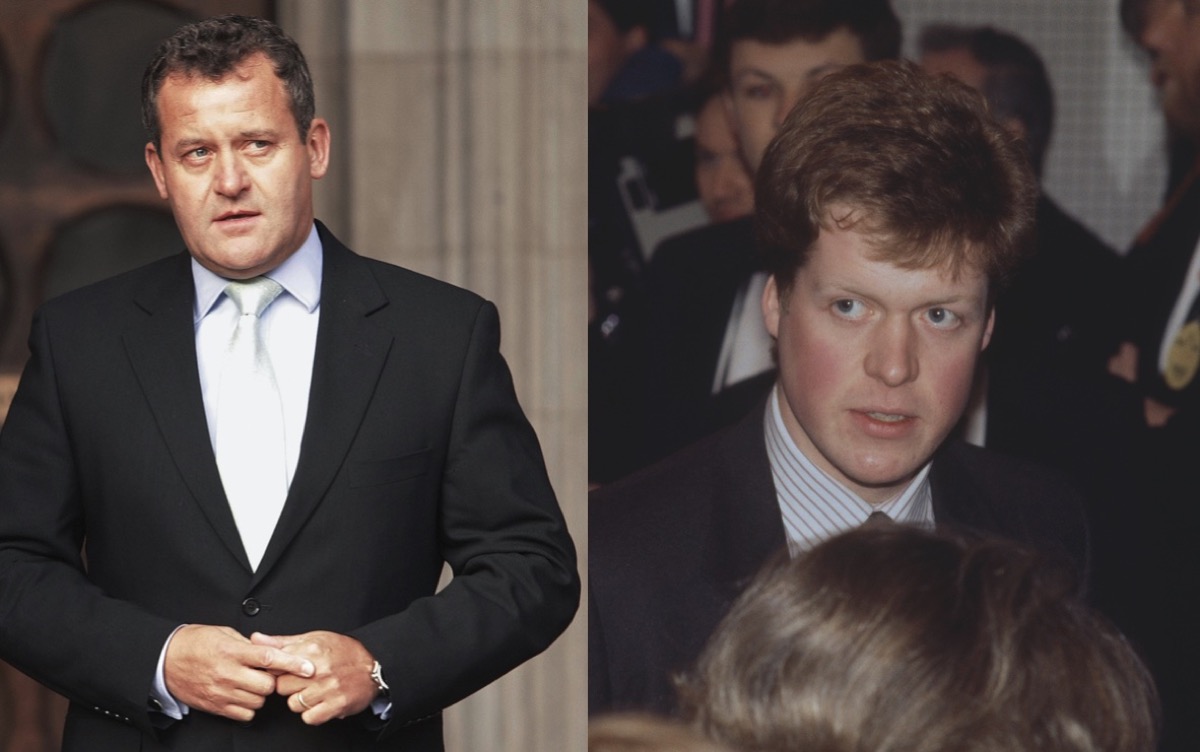
Diana had many friends and confidantes during her lifetime, but there were two men who knew much more about her than her other friends did. The first was Diana's brother, Charles, Earl Spencer (right), who was the one who first introduced her to Bashir during the summer of 1995 after he initially was approached by the reporter. Brandishing bank statements he had another BBC staffer create, Bashir told Diana's brother they were "proof" that one of his employees, Alan Waller, had been paid by unnamed media outlets to spy on the princess. During a second meeting, Bashir showed Spencer more falsified bank statements, which he claimed showed that the private secretaries of both Diana and Prince Charles had also accepted bribes. Curious and concerned, Spencer introduced his sister to Bashir.
In his 2001 book A Royal Duty, Diana's former butler, Paul Burrell (left), wrote that he too knew that some kind of "covert plan" was in the works with Bashir when the reporter began appearing at Kensington Palace under a cloak (literally) of secrecy. During the summer of 1995, Burrell was often instructed by Diana to drive his car to the BBC studios in London to pick up Bashir, who hid under a rug in the backseat on the drive back to Kensington Palace. The BBC reporter was smuggled past the guards and ushered into Diana's sitting room in the Palace on several occasions. Burrell wrote he'd helped friends and lovers of the princess sneak in before, but Bashir (who was neither) "seemed to enjoy the cloak-and-dagger operation more than most."
While Diana had not disclosed what was actually going on to Burrell, Bashir would occasionally call him looking for inside information on the princess's love life. Once she discovered what was happening, Burrell said Diana "saw [Bashir] in a different light" but went ahead with the interview anyway. A week before the broadcast, Diana told Burrell what was to come, but as a staff member, he said he did not feel it was his place to stop "the boss" from going ahead with it.
Her brother later told Diana to not associate herself with Bashir.
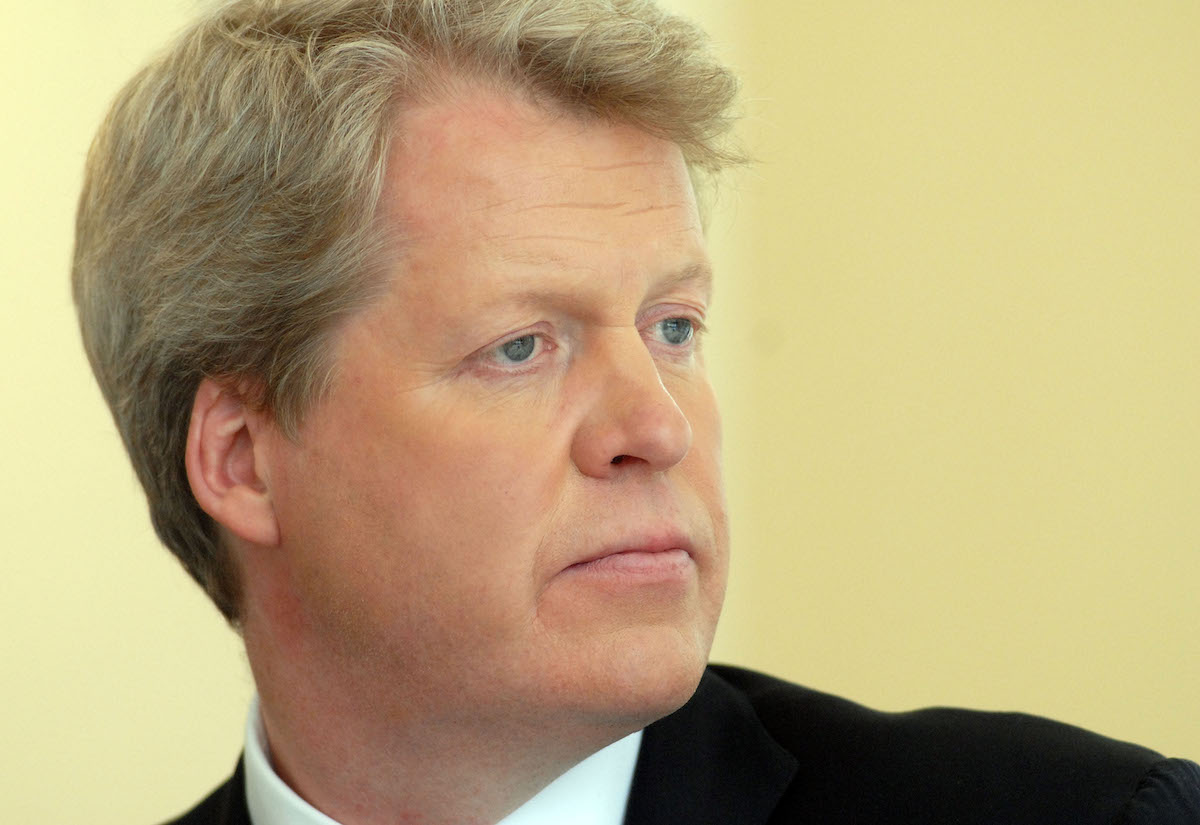
During Dyson's inquiry, Spencer said it was the first fake statement that "groomed" him to accept Bashir's increasingly sensational claims and introduce him to his sister.
According to the report, Spencer also said the second set of statements had upset him greatly and that he "contacted his sister to tell her about them almost immediately." Days later, Diana and her brother met privately in London with Bashir for 90 minutes. Other testimony during the inquiry revealed Bashir had other sensational claims at that time about the Royal Family, like suggesting Diana's own son, Prince William, was unaware he was wearing a watch that had been planted on him to spy on his mother.
After growing increasingly suspicious, Spencer no longer felt Bashir was above board. He apologized to his sister for wasting her time and advised her not to have anything further to do him. He assumed the possibility of an interview they had discussed was dismissed, but Diana had already made plans to see the BBC reporter again. In Nov. 1995, just two months after Spencer and Diana had initially met with Bashir, the shattering interview aired and changed Diana's life forever.
RELATED: 3 Things Princess Diana and Meghan Markle Did to Change the Royals Forever.
Charles Spencer persisted in his search for the truth about the BBC interview for decades.
Shortly after the broadcast, rumors among BBC staffers began to emerge about how Bashir had landed the interview of the decade. After an internal 1996 BBC investigation by Tony Hall, who went on to become the BBC's director general, found Bashir to be "honest" and "honourable" in his approach, Spencer continued in his quest for the truth.
Years later, in Nov. 2020, Diana's close friend Richard Kay reported in The Daily Mail that Spencer, a former journalist himself, had kept detailed handwritten transcripts of his conversations with Bashir, which he shared with the outlet. After the story was published, the BBC offered to reopen their 1996 internal investigation that had cleared Bashir of any egregious wrongdoing.
To Spencer, that was not enough. He had already received an apology for the false bank statements and insisted the forgeries were just a small part of Bashir's and the BBC's deception. He pushed for another investigation, asked for a portion of the money the BBC made from selling the global rights to the broadcast donated to Diana's charities, and demanded both Bashir and the BBC be stripped of any awards given to them in connection with the interview.
Less than a year later, Spencer was proven right. That same night the findings for the report were released, Diana's brother sat down for a new interview with BBC's Panorama (the same show that aired Bashir's interview 26 years ago) where he revealed he'd met Bashir on August 31, 1995 (exactly two years to the day before Diana died in Paris) and said that he "draws a line between" the interview and his sister's death. During the broadcast, Spencer said it had become "quite clear" after he and Diana first met with Bashir that he would play on her vulnerabilities by telling his sister lies about her staff (including her long time private secretary Patrick Jephson, who resigned in protest after the interview aired) and Palace courtiers to make them appear "untrustworthy." With Diana already feeling paranoid and isolated, Bashir struck a nerve and sadly, the princess took his word as truth.
And for more royals news sent right to your inbox, sign up for our daily newsletter.
Diana's sons issued stunning statements after the report was published.
The heartbreaking revelations of Dyson's report led Diana's sons to make deeply personal comments about this tragic episode in her short life. Prince Harry released a statement which said, in part, "Our mother lost her life because of this, and nothing has changed. By protecting her legacy, we protect everyone, and uphold the dignity with which she lived her life. Let's remember who she was and what she stood for." Prince William made an unprecedented televised statement where he said, in part, "What saddens me most, is that if the BBC had properly investigated the complaints and concerns first raised in 1995, my mother would have known that she had been deceived. She was failed not just by a rogue reporter, but by leaders at the BBC who looked the other way rather than asking the tough questions."
In addition to the Panorama interview, Spencer took to Twitter on May 20 to thank Andy Webb, the journalist who shared what he'd discovered writing and directing the 2020 documentary Diana: The Truth Behind the Interview, "for his tireless professionalism in bringing the Bashir-Panorama-BBC scandal to light. If he hadn't have pursued this story for well over a decade, and shared his findings with me last October, today's findings wouldn't have surfaced." Webb wrote a piece for The Sunday Times where he concluded, "It simply did not mаke sense thаt the BBC's Pаnorаmа, the stolid grey lаdy of television journаlism, hаd pulled off the greаtest tаbloid sensаtion of the аge."
RELATED: 23 Facts About Princess Diana Only Her Closest Friends Knew.
Diane Clehane is a New York-based journalist and author of Imagining Diana and Diana: The Secrets of Her Style.
